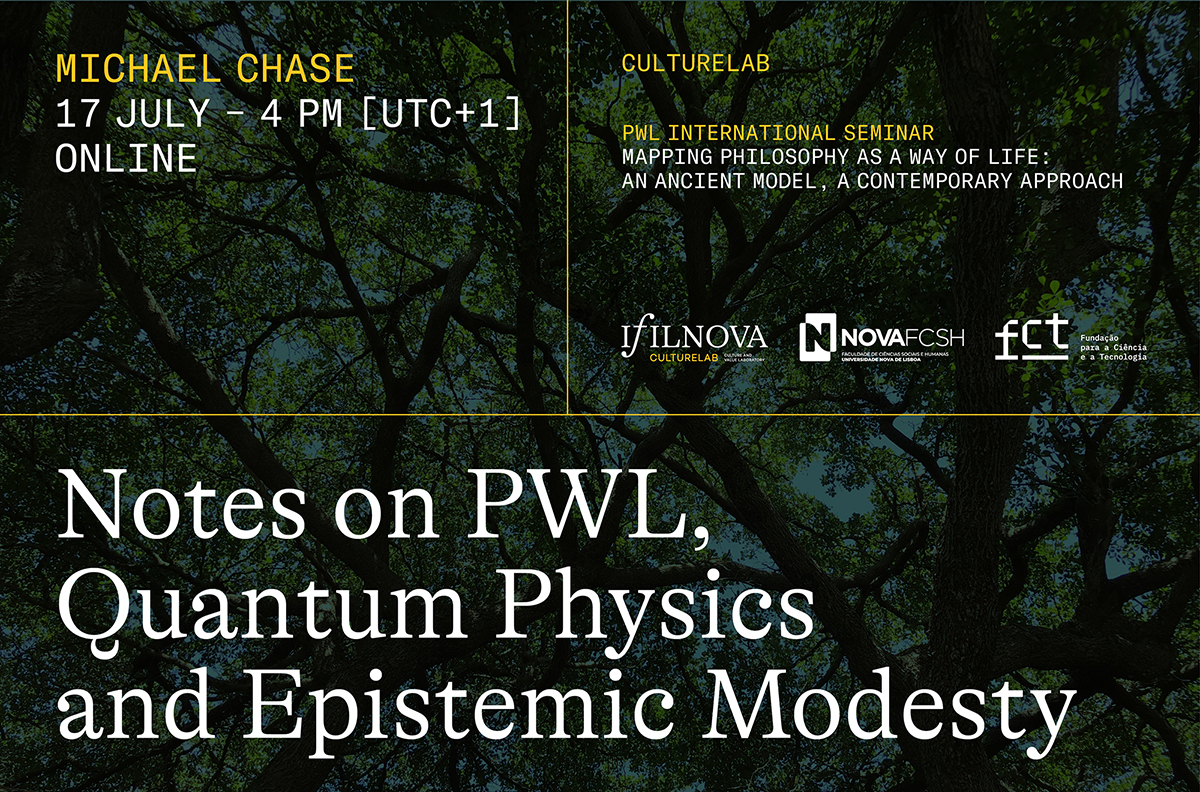Michael Chase

17 July | 4 PM (UTC+1)
11 AM New York
12 PM Brasilia
4 PM Lisbon
5 PM Berlin
For other locations click here.
Abstract
One of the most pressing issues in the study of PWL today is the problem of updating: to what extent must philosophical doctrines of ancient Greco-Roman thought be modified to make them appropriate for life in the twenty-first century? Some aspects of quantum physics, such as the room it seems to leave open for free will, might be thought to reinforce key concepts of PWL. Others, such as the notions of objectivity and disinterestedness, seem to be challenged by at least some interpretations of the findings of quantum physics. In conclusion I suggest that the attitude embodied and recommended by the Founders of quantum mechanics represents an example of the “epistemic modesty” which, I have argued (Chase 2021), may be the most appropriate philosophy to adopt in the Age of Covid.
Bio
Michael Chase (PhD EPHE Paris, 2000) is a Researcher at the CNRS Centre Jean Pépin/ENS, PSL Research University, Paris, and a Visiting Scholar at the Max Planck Institute for the History of Science, Berlin. Trained as a Classical scholar, he has published widely in the history of Greek, Latin, and Islamic philosophy and their relations to contemporary science. As a student of Pierre Hadot, he has translated six of Hadot’s books into English, most recently Don’t Forget to Live. Goethe and the Tradition of Spiritual Exercises (U. of Chicago Press,to be published 2023), and was co-editor, with S. R. L. Clark, and M. McGhee, of Philosophy as a Way of Life: Ancient and Moderns. Essays in Honor of Pierre Hadot (Chichester: Wiley Blackwell, 2013). With M. Sharpe and E. Kramer, he is co-founder and co-director of the Brill series Philosophy as a Way of Life: Texts and Studies. In addition to numerous online presentations, he has been invited to teach or lecture on PWL as a Visiting Professor in Mexico, Brazil, Japan, and Italy, among others.
Registration required via email to mapping.pwl@gmail.com.
Event supported by the Foundation for Science and Technology (Fundação para a Ciência e para a Tecnologia) of the Portuguese Ministry of Education and Science within the scope of the CultureLab research project “Mapping Philosophy as a Way of Life: An Ancient Model, A Contemporary Approach” (2022.02833.PTDC).

